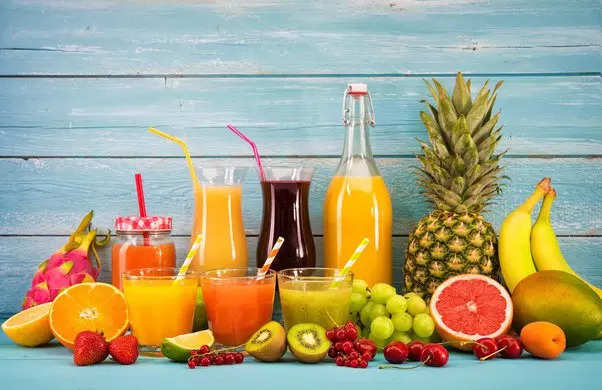According to DR Walter Willett, who is a professor of nutrition and epidemiology at Harvard T.H Chan School of Public Health and professor of medicine at Harvard Medical School in Boston, one basic problem with juice is the quantity, since the consumption of fruit in this way turns it easier for overdosing.
How can increased consumption of juice have an impact on us?
As time passes, the greater amount of blood sugar levels will lead to resistance to insulin, obesity, metabolic syndrome, heart disease, diabetes, and other serious conditions as per experts, CNN reported.
While the conclusions that were drawn out of the study did not reveal direct causation, only a relatedness, the findings were valid to a great extent, matching what we observe medically, as per Dr. Tamara Hannon, a pediatric endocrinologist and American Academy of Pediatrics’ committee on nutrition’s member, who was not a member of the research.
Because of concerns over the increasing childhood obesity rates and dental cavities, it was advised by the AAP to guardians and parents to avoid juice completely for babies who are younger than one year old, reducing intake to 4 ounces in a day for children who are aged between 1 to 3 years and only 6 ounces in a day for children who are aged between 4 to 6 years old.
According to Hannon, director of the pediatric diabetes program at Riley Hospital for Children and molecular genetics and medical professor at Indiana University School of Medicine in Indianapolis, there is no actual health reason for having juice rather than vegetables and fruits except for the case when a child is not tolerant to having regular food. As per national nutritional guidelines, adults and teens should be drinking not more than 8 ounces in a day of 100% juice, and juice should not be perceived as a healthy method for quenching thirst.
FAQs:
Q1. What is the impact of drinking juice on our health?
A1. Every day, drinking a glass or over 100% of fruit juice was related to a small increase in weight in children and adults, as per a new analysis of previous studies. A glass of orange is around three oranges which can be consumed within one minute or two and we can also return and have another, adding many calories, leading to an increase in blood glucose levels and resistance to insulin, obesity, metabolic syndrome, heart disease, diabetes and other serious conditions as per experts.
Q2. What is the prescribed limit for juice intake?
A2. As per national nutritional guidelines, adults and teens should be drinking not more than 8 ounces in a day of 100% juice, and juice should not be perceived as a healthy method for quenching thirst.
Disclaimer Statement: This content is authored by a 3rd party. The views expressed here are that of the respective authors/ entities and do not represent the views of Economic Times (ET). ET does not guarantee, vouch for or endorse any of its contents nor is responsible for them in any manner whatsoever. Please take all steps necessary to ascertain that any information and content provided is correct, updated, and verified. ET hereby disclaims any and all warranties, express or implied, relating to the report and any content therein.






































